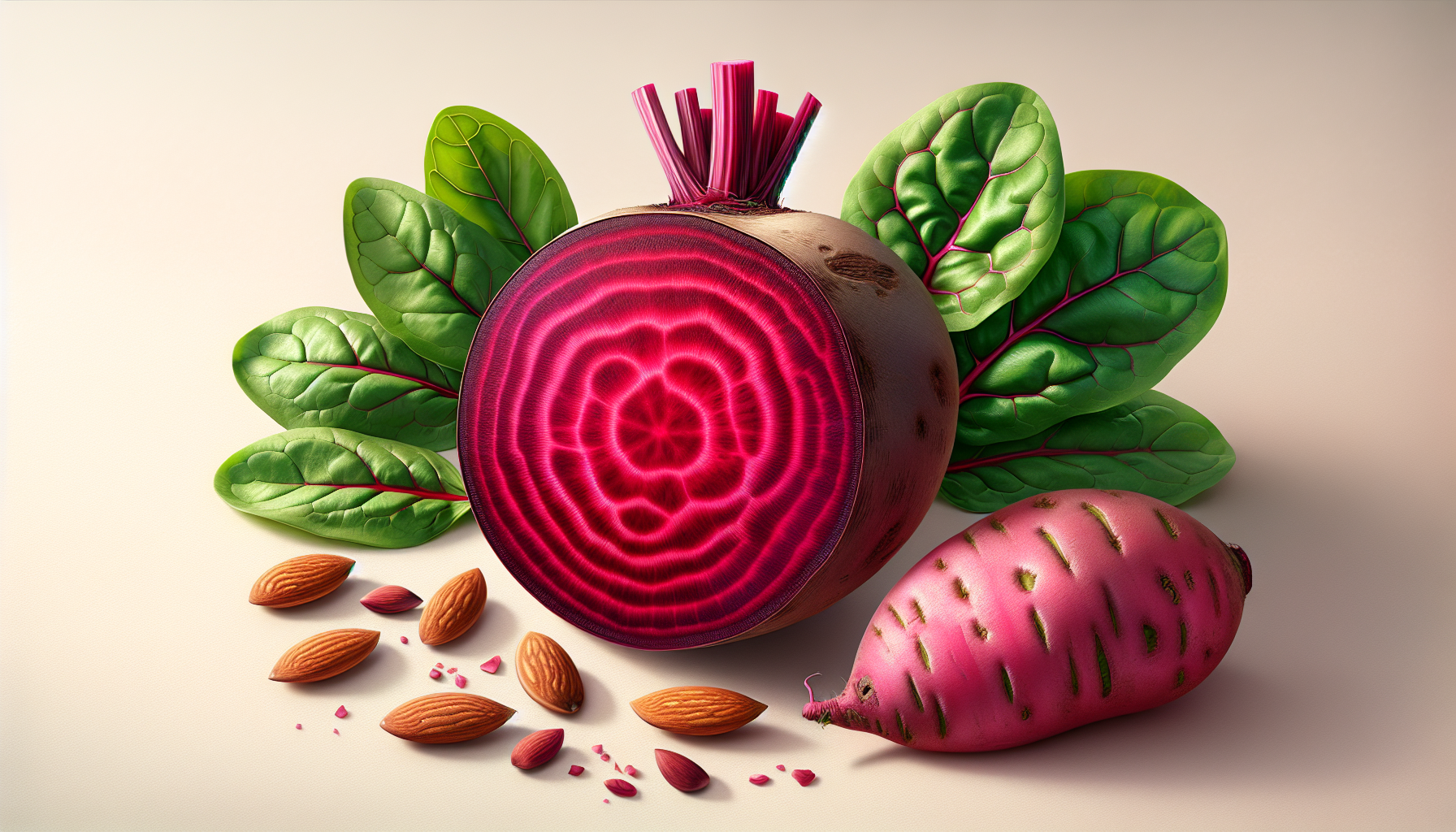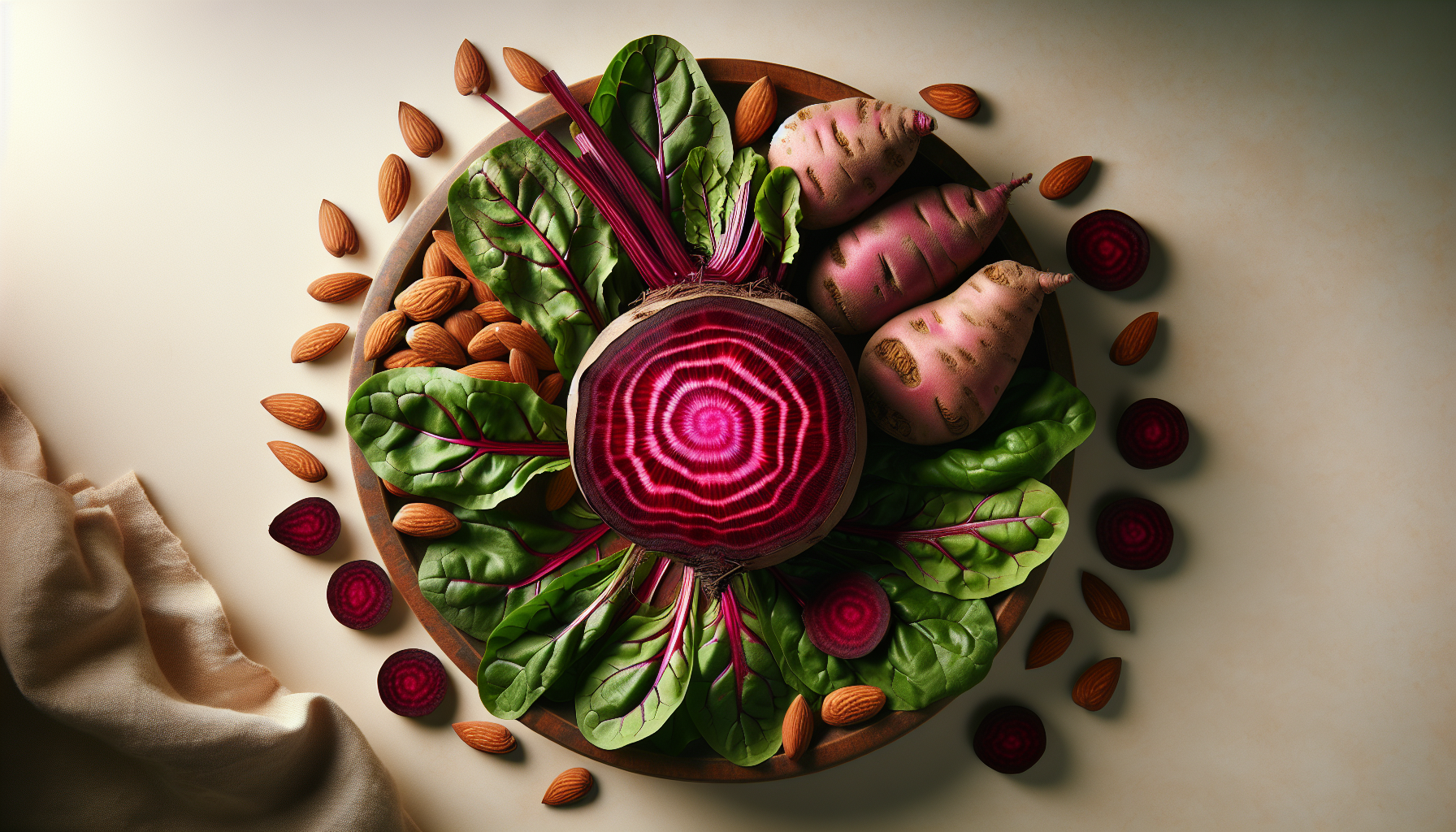Have you ever considered how the foods you eat impact not only your health but also your overall well-being? The conversation around nutrition is vast and sometimes overwhelming, especially when it comes to specific dietary components like oxalates. You’re likely aware that certain foods can lead to issues like kidney stones, but what happens when you eliminate high-oxalate foods from your diet? There are nutritional trade-offs that go beyond just avoiding discomfort.
Understanding Oxalates: What Are They?
Let’s start with the basics. Oxalates are naturally occurring compounds found in many plants. They can bind with minerals, particularly calcium, and can contribute to the formation of kidney stones. Foods like spinach, rhubarb, beets, and certain nuts are rich in oxalates. You might be thinking, “Well, if these foods are high in oxalates, shouldn’t I just avoid them altogether?” It’s not that simple, as eliminating these foods can lead to potential trade-offs in nutrition.

The Role of High-Oxalate Foods in a Balanced Diet
While it’s essential to be aware of oxalate-rich foods, it’s equally important to recognize their nutritional benefits. High-oxalate foods frequently contain valuable vitamins and minerals. Take spinach, for example; it’s loaded with vitamins A, C, K, and several B vitamins. When you consider cutting these foods from your diet, you might also miss out on these key nutrients.
The table below shows some common high-oxalate foods and their nutritional highlights:
| Food | Key Nutrients |
|---|---|
| Spinach | Vitamins A, C, K, folate, iron, calcium |
| Beets | Folate, manganese, potassium |
| Rhubarb | Vitamin K, vitamin C, manganese |
| Almonds | Vitamin E, magnesium, healthy fats |
| Sweet potatoes | Vitamins A, C, B6, potassium |
The Health Risks of High-Oxalate Foods
The most talked-about risk associated with high-oxalate foods is kidney stone formation. If you have a history of kidney stones, your doctor may advise you to limit oxalate intake. However, there are also risks linked to eliminating these foods altogether, such as potentially missing out on important nutrients that play vital roles in various bodily functions.
You may be wondering how exactly oxalates cause issues. When you consume foods high in oxalates, they can bind with calcium in the body to form insoluble calcium oxalate, which can crystallize and, in some cases, lead to stones.
Nutritional Implications of Going Low-Oxalate
When you decide to cut out high-oxalate foods, you’ll likely find yourself searching for alternatives. While that might lead you to healthier options, you should also be aware of the nutritional implications.
Loss of Nutrients
As mentioned earlier, high-oxalate foods are often rich in essential vitamins and minerals. If you eliminate them, you may need to seek out other food sources to compensate. This includes focusing on different greens or vegetables, but keep in mind that they might not contain the same beneficial nutrients as the high-oxalate options.
Increased Risk of Nutritional Deficiencies
By removing high-oxalate foods, you risk developing deficiencies in certain vitamins and minerals. A diet lacking in diversity often leads to nutritional imbalance. For example, green leafy vegetables are vital for their iron, vitamin K, and folate content. Without them, you may find yourself falling short on those nutrients.
Alternatives to High-Oxalate Foods
If you’re looking to cut back on oxalates but still want to maintain a nutritious diet, consider the following alternatives:
| High-Oxalate Food | Suggested Low-Oxalate Alternatives |
|---|---|
| Spinach | Romaine lettuce, kale, cabbage |
| Almonds | Walnuts, pumpkin seeds, sunflower seeds |
| Beets | Carrots, parsnips, sweet potatoes |
| Rhubarb | Apples, berries, other fruits |
As you make these switches, think about incorporating a variety of colors and types of food into your meals. Each color often represents different nutrients that your body needs.

The Balance Between Oxalates and Nutrients
If you’re focused on managing your oxalate intake due to kidney stones or other health concerns, it’s essential to find that balance. You don’t want to eliminate healthy foods without considering the consequences. Sometimes, moderation may be an option rather than strict avoidance.
Understanding Moderation
Many nutritionists agree that eating high-oxalate foods in moderation could be an ideal approach if you don’t have a specific medical reason to cut them entirely. For example, you could enjoy spinach in a salad topped with some cheese, allowing the calcium to bind with oxalates, thus helping to prevent stone formation.
Important Nutrients Often Found in High-Oxalate Foods
Recognizing which essential nutrients are often found in high-oxalate foods can offer direction on where to find replacements or how to supplement your diet. Below are a few nutritional benefits tied to high-oxalate foods:
-
Calcium: Crucial for bone health and muscle function, calcium-rich foods are often high in oxalates. Dairy products and fortified alternatives can serve as effective sources of calcium.
-
Iron: Iron is necessary for blood production and energy levels, and many high-oxalate foods provide non-heme iron. If you’re eliminating these sources, consider integrating lean meats or legumes for your iron intake.
-
Folate: This vitamin is essential for DNA synthesis and cell division. Leafy greens are high in folate, so consider alternatives like legumes and fortified grains if you cut greens from your diet.

Supplemental Options
If cutting out high-oxalate foods leads to nutrient deficiencies, supplements may be necessary. It’s always best to consult with a healthcare professional before starting any supplementation. Here are some common supplements to consider if you’re avoiding high-oxalate foods:
| Nutrient | Suggested Supplement Form |
|---|---|
| Calcium | Calcium citrate or calcium carbonate |
| Iron | Ferrous sulfate or ferrous gluconate |
| Folate | Folate tablets or methylfolate |
| Vitamin D | Vitamin D3, which aids calcium absorption |
The Psychological and Social Aspects
It’s also worth discussing the psychological impacts of dietary restrictions. Creating rules around eating can often lead to feelings of deprivation or frustration, especially if social events involve foods you’ve chosen to avoid.
You might feel a sense of isolation when friends gather for dinner or a family barbecue and you have to decline high-oxalate dishes. Eating is often tied to social interactions, which can make strict diets feel lonely.
Consider the following:
-
Culinary Creativity: Experimenting with new, low-oxalate recipes may boost your enjoyment of food. A little creativity can transform your dining experience, making it fun rather than restrictive.
-
Social Support: Engaging friends or family in your dietary changes might ease feelings of isolation. Share your new low-oxalate cooking ventures with them, and they might want to join in!

Making Informed Choices
Ultimately, the decision to eliminate high-oxalate foods is personal and should be based on your unique health needs, preferences, and lifestyle. Rather than seeing it as a punishment, consider it an opportunity to learn more about nutrition and to expand your culinary repertoire.
Consultation with a Professional
If you’re unsure about how to navigate this dietary territory, connect with a registered dietitian or nutritionist. They can help tailor a plan based on your specific health requirements while ensuring you maintain a well-rounded diet. This professional guidance is invaluable in avoiding unnecessary deficiencies.
Conclusion
The nutritional trade-offs of eliminating high-oxalate foods can be significant. While it might seem like a straightforward solution to avoid kidney stones or other health concerns, the implications on your overall nutrition, diversity in your diet, and even your mental well-being can’t be overlooked.
As you consider dietary changes, remember that balance is key. You’re not just eliminating foods; you’re adjusting your relationship with nutrition as a whole. Staying informed, experimenting with alternatives, and consulting with health professionals will empower you to navigate this path successfully. Just know that you’re embarking on a journey that prioritizes both health and pleasure in your food choices.


